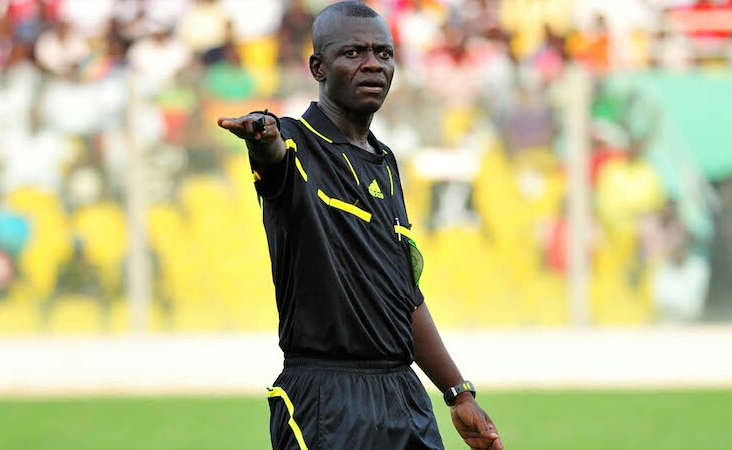
Football Clubs and referees’ performances
As part of improving on our football next season, I have through this column tried to appeal to our clubs to “take their hands off” our referees if we want good officiating from officials appointed to handle our matches.
Additionally, I also tried to point out to our referees the need to reject pressures and say NO to club officials who in their desperate attempts to win their matches at all cost, fair or foul, try to influence them.
My thinking is that if and when managers of our clubs move heaven and earth to make indecent approaches to our match officials and they succeed, they have forfeited the moral right to call such match officials all sorts of names and try to crucify them.
But the truth is that the “ball” stops with the referees. They should always have the strong character to refuse and turn down all offers and indecent approaches.
Just as good and bad people exist in every society, there are good and may be bad match officials in our football administration. The point, however, must be strongly made again that our match officials have the final say in any transactions that take place between them and club officials.
In a previous discussion I did reveal how some appointed referees boldly refused indecent offers from club officials and handled their matches perfectly to the admiration of all objective followers of the game.
I cited my own case on two different occasions when I resisted not only the bad influence of team officials from two clubs but also the club accomplices who were my assistant referees.
And there are a lot of decent referees who on weekly basis reject approaches to favour clubs and their teams. Most of our FIFA referees and some others belong to this group.
The point is this, so long as the game of football continues to be organised and played, club officials will always try to make approaches to influence match officials to ‘assist’ them to win their matches.
But the bare fact is that if our match officials would always turn away club officials who try to influence them, the incident would die a natural death.
It is a fact that club officials know and identify some of the referees that are not approachable because they never accept any favours from them.
Again there are many referees who handle their matches with professional ability and competence, whether club officials give them ‘transport’ money or not.
In another previous discussion, I revealed that when I was a member of the Referees Committee that was under the chairmanship of the late Mr Agbovi, a club official brought a list of referees, mostly the most experienced ones, to me and pleaded that they would be happy if they would not be appointed to handle their home matches.
We were shocked and surprised, since they were our trusted and competent referees. But on a careful interrogation of the matter, we found out that those referees were the ones that would rather not accept any form of ‘transport money’ from them and would therefore handle their matches professionally and without any favours or bias.
It, therefore, stands to good reason that if and when all our referees will turn their back on club officials we can have a better climate in which teams that deserve to lose matches and those that deserve to win their matches do so.
There was this one-time suggestion by the GFA president, who presides over our football, that referees should take the money but they should not be influenced by the money. No comments.
The fact is there are many occasions when clubs give money to match officials and those match officials actually do not do anything to help those club officials, but they win their matches all the same.
The unfortunate impression has been created that trying to influence match officials has become one of the strategies to win matches. It is wrong, dirty and most of the time unnecessary, but some club officials do it.
It has become part of their preparation or strategy for their matches. This is wasteful and bad. There is also a strong perception that in several instances, envelopes meant for match officials never reached them. The envelopes get dissolved between some club officials.
It must be pointed out that the issue of influence is not an exclusive Ghanaian phenomenon. It is world-wide, indeed money peddling influence in football happens in all segments of football administration.
So many years ago, we heard a BBC report of millions of euros paid to former FIFA President Joao Havelenge in bribes by collapsed FIFA marketing company ISL.
Indeed, another FIFA top official, Executive Committee Member, Ricardo Teixeiro, was also reported to have received over eight million euros. The report, published by FIFA itself, further revealed that the two officials might have received over 14 million euros.
The recent happenings in Sepp Blatter’s FIFA are very fresh. It surely is happening everywhere and every day. We should all constantly make the effort to try to eliminate these bad practices.
My problem, however, is that it is only those issues perceived to be involving referees that are highlighted and condemned in Ghana.
We should, especially those of us in football administration, find ways and means of curbing it. We need a cleaner season, if our football is to continue to grow.
On some occasions, there have been allegations of financial transactions in some matches. But very often the issues fizzle out when the noose is getting round the necks of club officials.
These are issues that are not comfortably discussed. But they occur. And we must do something positive about them.
